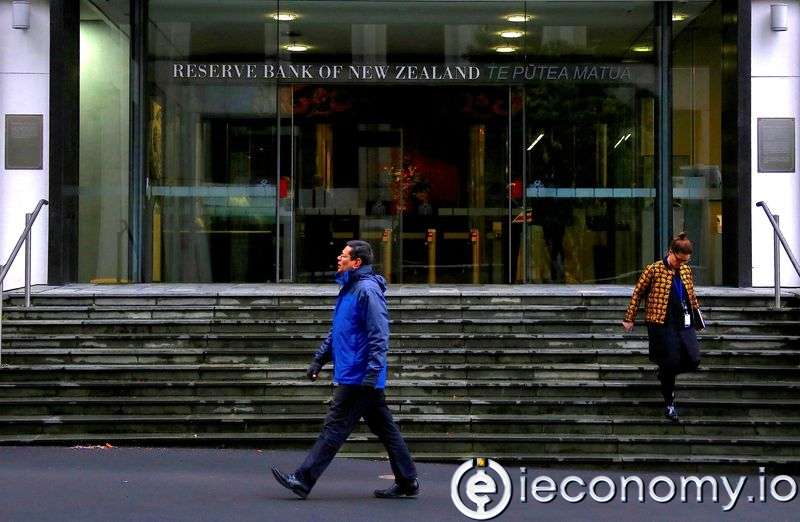3466
0
Aggressive Tightening by the Reserve Bank of New Zealand
The Reserve Bank of New Zealand is expected to raise rates by half a percentage point for the third time this week in the most aggressive...

Yazar: Charles Porter
Yayınlanma: 11 Temmuz 2022 06:16
Güncellenme: 3 Mart 2026 06:11
Aggressive Tightening by the Reserve Bank of New Zealand
The Reserve Bank of New Zealand is expected to raise rates by half a percentage point for the third time this week in the most aggressive policy tightening in two decades, but growing signs of a sharp downturn in the economy could soften the hawkish bias.
Falling confidence and faltering economic data have the market questioning whether the Reserve Bank of New Zealand (RBNZ) will do more harm than good in its quest to contain rising inflation. "Monetary policy works with a lag: first it affects confidence, then activity and finally inflation," said Sharon Zollner, chief economist at ANZ. "So by focusing on these inflation indicators, they're looking in the rearview mirror, which tells you that they're quite likely to miss the turn and over tighten." The RBNZ, a pioneer among its peers in withdrawing pandemic-era stimulus, has taken hawkish steps to curb inflation at 6.9%, the highest in three decades, causing rates to rise 175 basis points since October. A 50 basis point hike at Wednesday's policy review would mean they would have risen ten-fold from a record low of 0.25%. Economists forecast another half-point hike in August, which would be the most aggressive policy tightening since the official cash rate was introduced in 1999. RBNZ Governor Adrian Orr said acting early and fast is the best way for the central bank to achieve its primary inflation and employment objectives. (nP8N2VA01J) But the problem that other central banks, such as Australia and South Korea, may face as they move through their own hiking cycles to reduce high inflation is that this rapid change risks pushing the country into recession.İLGİLİ HABERLER





European stocks soared and focus shifted to German retail sales after Powell's speech!

Forex Signal For TRY/USD: Inflation Slowdown in November.

Forex Signal For GBP/USD: Bullish Trend Still Not Breaking While Recovery Continues.

Forex Signal For EUR/USD: Starry US Data Points to Higher Fed Increases.

Forex Signal For BTC/USD: Downside Continues as Bitcoin Recovery Moves Less.
En Popüler Haberler
Yorum Yap
Yorumlar
Henüz yorum yapan yok! İlk yorumu siz yapın...